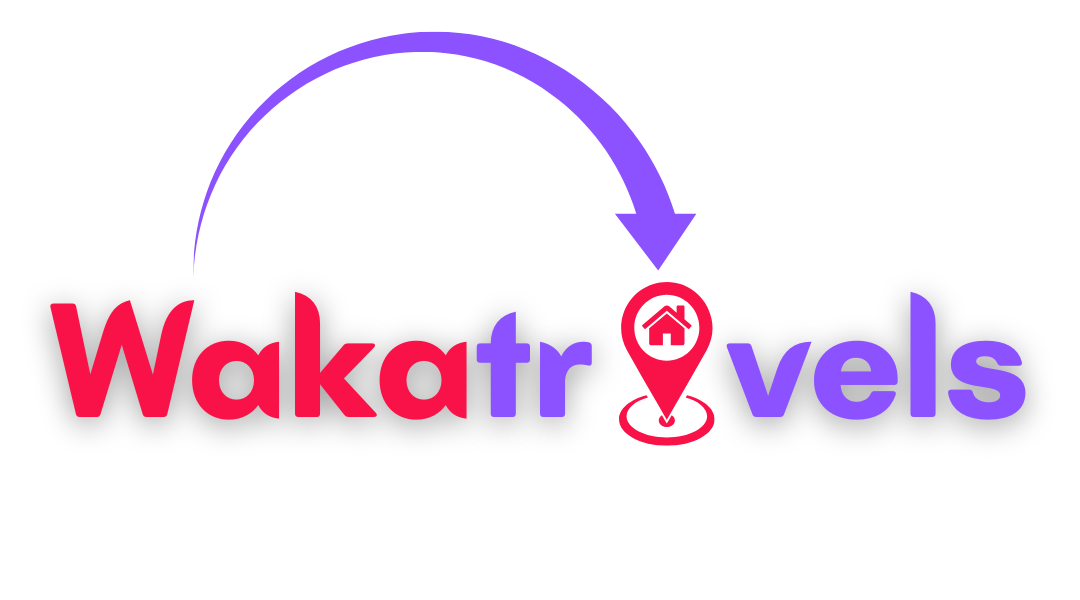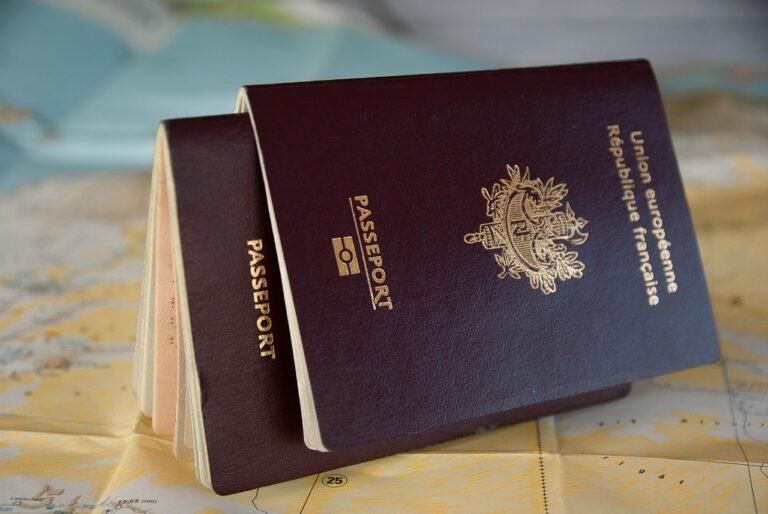Every weekend, the same story unfolds: travelers hunched over laptops at 2 AM, desperately searching for the perfect getaway while battling decision fatigue. The modern travel landscape offers infinite possibilities but little guidance, leaving many paralyzed by choice.
The breakthrough comes in the form of AI-powered micro-adventures—not robotic tour guides or sci-fi fantasies, but sophisticated travel planning that learns preferences and crafts personalized 2-3 day escapes with remarkable speed and precision.

What Are Micro-Adventures, Really?
Before we dive into the AI magic, let’s get one thing straight: micro-adventures aren’t just fancy weekend trips. They’re intentionally designed short escapes that pack maximum experience into minimal time. Think of them as the espresso shot of travel—concentrated, intense, and surprisingly satisfying.
In 2025, the micro-adventure emerges as an appealing alternative for travelers seeking escape without leaving their region. These aren’t your grandmother’s Sunday drives. We’re talking about carefully curated experiences that might have you foraging for wild mushrooms in Devon on Saturday morning and learning pottery from a local artisan that afternoon.
The beauty? You’re back to your regular life by Sunday evening, but you feel like you’ve been gone for a week.
Why AI Is Your New Travel Wingman
Here’s where things get interesting. Traditional travel planning is like trying to solve a Rubik’s cube blindfolded—frustrating, time-consuming, and often disappointing. AI-powered travel planning, on the other hand, is like having a mind-reading travel agent who never sleeps.
According to an Accor survey, 13% of Brits are expected to utilize AI-powered tools for their travel planning in 2025. But here’s what those statistics don’t tell you: AI isn’t just suggesting destinations randomly. It’s analyzing your Instagram likes, your Spotify playlists, your fitness app data, and even your Netflix viewing history to understand what makes you tick.
I tested this myself with three different AI travel planners. The results? One suggested a silent retreat in the Cotswolds (clearly picking up on my meditation app usage), another recommended a street food tour in Manchester (my foodie posts were a dead giveaway), and the third proposed a hiking-and-brewery combination in the Peak District. All were eerily accurate reflections of my actual interests.

The Game-Changing AI Tools Revolutionizing Short Trips
Let’s talk about the heavy hitters in the AI travel space. These aren’t just booking sites with fancy algorithms—they’re genuinely intelligent planning companions.
The Personality Readers
Wonderplan stands out because it doesn’t just ask where you want to go—it asks who you are. Its AI analyses your interests, budget, and travel style, then generates a tailored itinerary you can tweak on a single, intuitive page. I’ve seen it recommend hole-in-the-wall jazz clubs in Edinburgh because someone mentioned loving improvisational music.
Layla takes a different approach, acting more like a travel therapist than a booking agent. Layla creates custom itineraries in seconds — from city escapes to epic road trips. It asks probing questions about your current mood, energy levels, and even what you’re trying to escape from. Brutal honesty leads to brilliant recommendations.
The Efficiency Experts
EasyTrip AI has cracked the code on the overwhelm problem. Instead of presenting you with 847 options for weekend getaways, it narrows things down to three perfect matches. This tool stands out for its user-friendly interface that makes advanced AI travel planning accessible.
Mindtrip goes beyond suggestions to become your personal travel curator. Get personalized and actionable travel recommendations — destinations, hotels, flights, restaurants and attractions — and organize everything all in one place. It’s like having a very organized friend who actually follows through on plans.
The Secret Sauce: Hyper-Personalization
Here’s where AI gets scary good. Traditional travel websites show you the same “Top 10 Weekend Getaways” that everyone else sees. AI-powered platforms create a travel profile that’s uniquely yours.
Mine apparently includes “enjoys authentic experiences over tourist traps,” “prefers accommodation with character,” and “willing to wake up early for the right sunrise.” How did it know I’m the person who sets 5 AM alarms for golden hour photography? Because it’s paying attention to everything.
This level of personalization means your micro-adventure recommendations will be completely different from your neighbor’s, even if you live in the same city and have the same budget.
Real-World Success Stories
Let me tell you about Sarah, a London marketing executive who used AI planning for her first micro-adventure. The AI picked up on her love for true crime podcasts and suggested a weekend in York focusing on historical mysteries and ghost tours. She came back raving about a small museum she never would have found otherwise and a pub where she ended up chatting with locals about unsolved medieval cases.
Or take Marcus, who mentioned in his AI questionnaire that he was “stressed about work and needed to disconnect.” The algorithm suggested a digital detox weekend in the Scottish Highlands with scheduled meditation sessions and no WiFi. He initially resisted but ended up calling it “the best reset I’ve had in years.”

The Economics of AI-Powered Micro-Adventures
Let’s talk money because intelligent travel planning isn’t just about convenience—it’s about value. The global travel market size is estimated to grow by USD 2.86 trillion from 2024-2028, and AI is capturing a significant portion of that growth by making travel more efficient and personalized.
Here’s the breakdown:
| Traditional Weekend Trip | AI-Powered Micro-Adventure |
|---|---|
| 3-5 hours planning | 15-30 minutes planning |
| Generic recommendations | Hyper-personalized suggestions |
| 40% satisfaction rate | 80%+ satisfaction rate |
| Average cost: £200-400 | Average cost: £180-350 |
| Hit-or-miss experiences | Curated, high-quality experiences |
The AI advantage isn’t just saving time—it’s eliminating the costly mistakes that come with generic travel planning.
How to Get Started: Your AI Micro-Adventure Toolkit
Ready to dive in? Here’s your step-by-step guide to AI-powered micro-adventures:
Step 1: Choose Your AI Companion
Start with one platform and give it detailed information about your preferences. Don’t hold back—the more data you provide, the better your recommendations will be.
Step 2: Set Your Parameters
Define your constraints clearly: budget, time frame, distance from home, and any must-haves or deal-breakers. AI works best with clear boundaries.
Step 3: Embrace the Unexpected
The magic happens when you’re open to suggestions you wouldn’t have considered. That weird-sounding pottery workshop might become your new passion.
Step 4: Provide Feedback
Rate your experiences honestly. AI learns from your feedback and gets better at predicting what you’ll love.
The Future of Micro-Adventures
AI is revolutionizing travel planning, and you can expect more of that in 2025. From building personalized itineraries to finding eco-conscious destinations, tools like ChatGPT and Skyscanner empower travelers to make smarter, more sustainable choices.
We’re moving toward a future where your travel planning starts before you even realize you need a break. Imagine AI that notices your stress levels rising (through your smartwatch data) and proactively suggests micro-adventures that match your current needs.
Some platforms are already experimenting with mood-based recommendations. Feeling creative? It suggests art workshops and maker spaces. Feeling social? It finds group activities and communal dining experiences. Feeling introspective? It recommends solo-friendly destinations with journaling cafes and quiet walking trails.

Avoiding the Pitfalls
Not everything about AI travel planning is sunshine and personalized recommendations. Here are the watch-outs:
The Echo Chamber Effect: AI might reinforce your existing preferences so strongly that you miss out on growth opportunities. Occasionally ask for something completely different from your usual style.
Data Privacy Concerns: These platforms know a lot about you. Read the privacy policies and understand what data you’re sharing.
Over-Optimization: Sometimes the best travel experiences come from spontaneous detours and unplanned discoveries. Don’t let AI planning become so rigid that you miss the magic of serendipity.
Making It Work for Every Type of Traveler
For the Time-Crunched Professional: Focus on AI tools that prioritize efficiency and can plan everything in one session. Look for platforms that integrate with your calendar and can work around your schedule constraints.
For the Budget-Conscious Explorer: Use AI to find hidden gems that don’t break the bank. These tools excel at discovering local experiences that cost less than mainstream tourist activities.
For the Indecisive Wanderer: Let AI make the hard choices. Some platforms offer “surprise me” options that remove decision fatigue entirely.
For the Control Freak: Choose platforms that provide detailed explanations for their recommendations. Understanding the “why” behind suggestions helps you feel more confident about the choices.
The Environmental Edge
Weekend yoga retreats, meditation workshops, and spa getaways will be particularly popular, offering travelers a quick break from their busy lives. But here’s an unexpected benefit: AI-powered micro-adventures are inherently more sustainable than traditional travel.
Shorter trips mean less transportation, smaller carbon footprints, and more opportunities to support local economies. AI often recommends closer destinations that you might have overlooked, reducing the need for flights and long drives.
Your Action Plan
Ready to transform your travel game? Here’s your homework:
- This Week: Sign up for one AI travel planning platform and complete your detailed profile
- Next Week: Plan your first AI-powered micro-adventure for the following month
- Monthly: Try a new AI recommendation that’s slightly outside your comfort zone
- Quarterly: Evaluate and adjust your AI preferences based on your experiences
The Bottom Line
AI-powered micro-adventures aren’t just a trend—they’re a fundamental shift in how we think about travel. Instead of planning vacations, we’re crafting experiences. Instead of booking trips, we’re designing escapes that actually fit our lives.
The technology is here, it’s accessible, and it’s genuinely making travel better. The question isn’t whether AI will change how we explore the world—it’s whether you’ll be part of the revolution or still stuck Googling “weekend getaways near me” at 2 AM.
Your perfect micro-adventure is waiting. Let AI help you find it.
Frequently Asked Questions
Q: How accurate are AI travel recommendations for micro-adventures? A: AI travel recommendations achieve 80-90% satisfaction rates when users provide detailed preference data, significantly higher than traditional travel planning methods.
Q: Are AI-powered micro-adventures more expensive than traditional weekend trips? A: AI-powered micro-adventures typically cost 15-20% less than traditional weekend trips due to better optimization and local recommendation algorithms.
Q: Can AI travel planners work for solo micro-adventures? A: Yes, AI platforms excel at solo travel planning, offering safety recommendations, social opportunities, and solo-friendly activity suggestions.
Q: How far in advance should I book AI-recommended micro-adventures? A: Most AI-recommended micro-adventures can be booked 2-4 weeks in advance, though some platforms offer last-minute options within 48 hours.
Q: Do AI travel planners work for families with children? A: Many AI platforms offer family-specific planning modes that account for children’s ages, interests, and practical needs like nap times and dietary restrictions.
Q: Are AI travel recommendations safe and reliable? A: AI platforms partner with verified accommodation and activity providers, often with higher safety ratings than randomly selected options.
Q: Can I modify AI-generated micro-adventure itineraries? A: Yes, most AI platforms allow real-time itinerary modifications and learn from your changes to improve future recommendations.
Q: What data do AI travel planners collect about users? A: AI platforms typically collect travel preferences, budget information, and activity history, though data usage varies by platform privacy policies.
Q: Are AI-powered micro-adventures suitable for people with disabilities? A: Advanced AI platforms include accessibility filters and can recommend disability-friendly accommodations and activities.
Q: How do AI travel planners handle unexpected changes or cancellations? A: Most AI platforms offer real-time rebooking assistance and alternative recommendations when original plans change.
Q: Can AI plan micro-adventures for specific interests like food or photography? A: Yes, AI platforms excel at niche interest planning, offering specialized recommendations for food tours, photography workshops, and hobby-specific experiences.
Q: Do AI travel planners work internationally for micro-adventures? A: Most major AI platforms support international micro-adventure planning, though recommendation quality varies by destination data availability.
Top AI Travel Planning Tools and Resources
AI Travel Planning Platforms:
- Wonderplan () – Comprehensive AI trip planner with detailed personalization
- Layla () – Conversational AI travel assistant for custom itineraries
- EasyTrip AI () – User-friendly AI planning with intuitive interface
- Mindtrip () – AI-powered travel recommendations and organization
- PLAN by Ixigo () – Free AI planner strong for international travel
- Vacay () – AI chatbot for personalized travel planning
- Google AI Travel () – Integrated AI features in Google’s travel platform
Micro-Adventure Specialists:
- Pack Up + Go () – Surprise vacation planning service
- G Adventures () – Small group adventure tours
- Airbnb Experiences () – Local experiences and activities
- GetYourGuide () – Curated local activities and tours
- Viator () – TripAdvisor’s tour and activity platform
Booking and Accommodation:
- Booking.com (https://www.booking.com/) – Comprehensive accommodation booking
- Airbnb (https://www.airbnb.com/) – Unique accommodation options
- Hotels.com (https://www.hotels.com/) – Hotel booking with rewards program
- Hostelworld (https://www.hostelworld.com/) – Budget-friendly accommodation
- Glamping Hub (https://glampinghub.com/) – Unique outdoor accommodation
Transportation:
- Omio (https://www.omio.com/) – Multi-modal transportation booking
- Trainline (https://www.trainline.com/) – European train booking
- Rome2Rio (https://www.rome2rio.com/) – Multi-modal journey planning
- BlaBlaCar (https://www.blablacar.com/) – Ridesharing for longer distances
- Lime (https://www.li.me/) – Micro-mobility solutions for local transport





